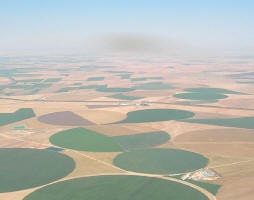 Egypt, Israel voice support for Red-Dead canal project
Egypt, Israel voice support for Red-Dead canal project
Egypt and Israel voiced support for the Red-Dead canal project, which seeks to address
the Kingdom's water and energy challenges.This was during the Ministerial conference held in the Dead Sea last 22nd December.
"We have no official opposition to the Red-Dead canal project," Egyptian Minister of Irrigation and Water Resources Mahmoud Abu Zaid said on the sidelines of the ministerial water conference yesterday, stressing that tourism in Egypt will not be affected by the venture.
"Such a project, if implemented, will be an added value in terms of attracting more tourists to the region," Abu Zaid said, adding that the number of visitors to the pyramids or Sharm El Sheikh will not change.
The Egyptian minister, however, cited reservations on the project expressed by several environmental activists, who say such that diverting water from the Red Sea would create currents that might have a negative effect on marine life.
"Such fears have not been confirmed yet, as the project's environmental assessment is still under way; however, this study will not have the final say with regard to the implementation of the project," he added.
Several countries have contributed $15 million for the multipurpose Red-Dead canal project's feasibility study and environmental assessment.
French company Coyne et Bellier is currently carrying out the feasibility study for the project, while the British firm Environmental Resources Management is undertaking the environmental assessment.
Meanwhile, Israeli Infrastructure Minister Benjamin Ben-Eliezer, who headed his country's delegation to the water conference, said the "Peace Canal" project could benefit the entire Middle East.
He noted that Jordan's share of desalinated water under the project will be 65 per cent while 35 per cent will go to Israel and the West Bank.
The project is expected to provide Jordan with 500 million cubic metres (mcm) of water annually.
The Red-Dead canal project is part of international efforts to save the Dead Sea, which has been shrinking at the rate of one metre per year, largely due to the diversion of water from the Jordan River for agricultural and industrial use.
During the past 20 years alone it has plunged more than 30 metres, with experts warning that it could dry up within the next 50 years.
Due to the water level drop, the sea's surface area has shrunk by at least 33 per cent over the last 56 years with an average annual inflow decrease from 1,200mcm of water to around 250mcm.
If implemented, it would involve the construction of a pipeline that would pump around two billion cubic metres of water from the Red Sea to a desalination unit near the Dead Sea. Half the amount will be desalinated, supplying the main urban centres of the Kingdom and the West Bank, while the rest would be channelled to the Dead Sea.
The second stage of the around $4.35 billion project would involve taking advantage of the natural slope between the Red Sea level in Aqaba and that of the Dead Sea (400 metres below sea level) to produce hydroelectricity.
| Contact information | n/a |
|---|---|
| News type | Inbrief |
| File link |
http://www.jordantimes.com/?news=12991 |
| Source of information | The Jordan Times |
| Subject(s) | DRINKING WATER , DRINKING WATER AND SANITATION : COMMON PROCESSES OF PURIFICATION AND TREATMENT , ENERGY , FINANCE-ECONOMY , HYDRAULICS - HYDROLOGY , INFRASTRUCTURES , NATURAL MEDIUM , POLICY-WATER POLICY AND WATER MANAGEMENT , PREVENTION AND NUISANCES POLLUTION , RISKS AND CLIMATOLOGY , SANITATION -STRICT PURIFICATION PROCESSES |
| Relation | http://www.medaquaministerial2008.net/ |
| Geographical coverage | Egypt, Jordan, Israel |
| News date | 23/12/2008 |
| Working language(s) | ENGLISH |
 you are not logged in
you are not logged in





